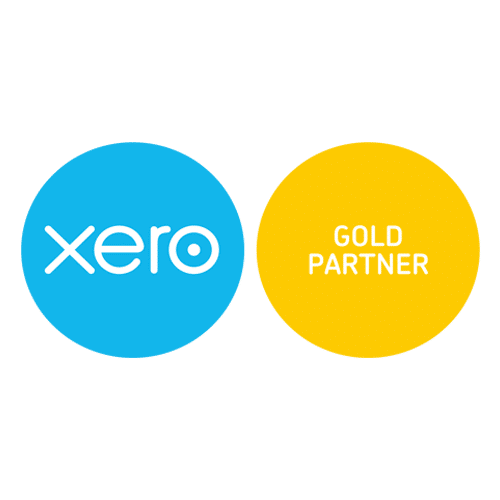





In the ever-evolving realm of e-commerce, achieving success goes beyond the art of providing desirable products and services to a digitally connected customer base. Equally paramount is the art of efficient financial management, a key driver for long-term growth and sustainability. In today’s fast-paced digital landscape, e-commerce businesses must recognize that their financial health is the backbone of their operations. This comprehensive blog aims to serve as a guiding beacon for e-commerce enterprises in the United Kingdom, expertly navigating them through the intricate terrain of bookkeeping. Our mission is to ensure that financial records are not just carefully maintained but also that businesses operate in strict adherence to the multifaceted web of tax regulations set forth by the UK government.
In the UK, e-commerce businesses have two primary options for accounting methods: cash basis and accrual basis.
Cash Basis Accounting:
Cash basis accounting is a straightforward method where you record income and expenses when cash actually flows in and out of your business. It’s suitable for small businesses with a turnover of up to £150,000. This method offers a simpler way to manage your finances, making it ideal for e-commerce startups.
Accrual Basis Accounting:
Accrual basis accounting records income and expenses when they are earned or incurred, regardless of when the cash is exchanged. It’s often required for larger e-commerce businesses or those dealing with high volumes of transactions.
Selecting the appropriate accounting method sets the stage for effective bookkeeping.
An organized system is the basis of good bookkeeping. Here’s how to structure your financial records:
1. Separate Business and Personal Finances:
Combining personal and business finances can lead to confusion and tax complications. Open a dedicated business bank account and use it exclusively for e-commerce transactions.
2. Maintain Digital Records:
In the digital age, opt for accounting software or tools that cater specifically to e-commerce businesses. This simplifies the tracking of sales, expenses, and inventory.
3. Categorize Transactions:
Categorize your transactions systematically, such as sales revenue, cost of goods sold, marketing expenses, shipping costs, and more. This simplifies financial analysis.
For e-commerce businesses, maintaining accurate sales records is essential.
1. Sales Invoices:
Create and maintain detailed sales invoices that include essential information, such as customer details, product descriptions, quantities, prices, and transaction dates.
2. Payment Records:
Document payment methods, payment dates, and any transaction fees involved in payment processing platforms such as PayPal, Stripe, or Credit card processors.
3. Inventory Management:
Implement a robust inventory tracking system, which should include information about product cost, quantity on hand, and sales volume.
Thorough expense tracking ensures you maximize tax deductions and maintain a clear financial picture.
1. Keep Receipts and Invoices:
Retain all receipts and invoices related to business expenses, such as advertising, office supplies, shipping costs, and any professional fees.
2. Reconcile Bank Statements:
Regularly reconcile your business bank account with your financial records to ensure accuracy. Discrepancies should be promptly addressed.
3. Record Non-deductible Expenses:
Some expenses may not be deductible for tax purposes, such as fines and penalties. Ensure they are separated from your deductible expenses.
E-commerce businesses need to be aware of VAT obligations.
1. VAT Registration:
If your e-commerce business surpasses the £85,000 annual turnover threshold, you must register for VAT. Even if you are below the threshold, voluntary registration can be beneficial.
2. Collecting VAT:
For sales subject to VAT, ensure you’re charging the correct VAT rate. Different products and services may attract different VAT rates, including zero-rated and exempt items.
3. VAT Returns:
Submit regular VAT returns to HMRC, accurately reflecting the VAT collected and paid. This requires meticulous bookkeeping of VAT transactions.
Staying compliant with UK tax regulations is non-negotiable.
1. Corporation Tax:
E-commerce businesses operating as limited companies must pay corporation tax on their profits. Ensure accurate financial records for calculating your tax liability.
2. Income Tax:
For sole traders or partnerships, personal and business income may be intertwined. Maintain clear records to separate these, ensuring accurate income tax calculations.
3. Employment Taxes:
If you have employees, pay close attention to payroll taxes. Deduct income tax and National Insurance contributions and report them accurately.
Consistent reconciliation and reporting are vital for a healthy financial landscape.
1. Monthly Reconciliation:
Reconcile your financial records with your bank statements and check for any errors. This monthly exercise ensures errors are caught and rectified promptly.
2. Monthly Financial Reports:
Create and analyze monthly financial reports to gain insights into your business’s performance. Tools like profit and loss statements can be invaluable.
3. Year-End Financial Statements:
Prepare annual financial statements for tax purposes. These encompass financial documents such as balance sheets, income statements, and cash flow statements.
While you can handle the basics, complex tax regulations may necessitate professional assistance.
1. Accountant:
Hiring a qualified accountant can ensure accurate tax returns and help you make strategic financial decisions.
2. Tax Advisor:
A tax advisor can provide advice on minimizing tax liabilities and optimizing your tax position.
In the digital age, cloud accounting solutions have become essential.
1. QuickBooks: QuickBooks offers a user-friendly platform for e-commerce businesses to manage finances effectively.
2. Xero: Xero is known for its ease of use and real-time financial insights, making it a top choice for many businesses.
3. FreshBooks: FreshBooks is renowned for its invoicing and expense tracking capabilities, simplifying financial management.
Meru Accounting, as a dedicated accounting and bookkeeping firm, understands that effective financial management is the basis of success for e-commerce businesses in the UK. Our commitment to excellence involves assisting you in selecting the appropriate accounting method, maintaining well-organized financial records, diligently monitoring sales and expenses, and ensuring your full compliance with tax regulations. We encourage the adoption of digital tools and, when necessary, provide professional expertise to safeguard your business’s financial health. With these established practices, Meru Accounting can guide you through the complexities of bookkeeping in the UK with confidence and ease.
1. What is the significance of choosing the right accounting method for my e-commerce business in the UK?
Choosing the right accounting method sets the foundation for effective bookkeeping. It impacts how you record income and expenses, and it’s essential for accurate financial management and compliance with tax regulations.
2. What is the difference between cash basis and accrual basis accounting in the UK?
Cash basis accounting records income and expenses when cash flows in and out of your business, while accrual-basis accounting records them when they are earned or incurred, regardless of cash exchange.
3. Why are accurate record-keeping and sales invoices crucial for e-commerce businesses?
Accurate record-keeping ensures you maintain a clear financial picture and maximize tax deductions. Detailed sales invoices help track customer details, product descriptions, prices, and transaction dates, which is essential for compliance and financial analysis.
4. What are the tax compliance requirements for e-commerce businesses in the UK?
Depending on your business structure, you may have to pay corporation tax, income tax, or employment taxes. It’s essential to keep accurate financial records to calculate and report these taxes correctly.
5. When should I seek professional help for my e-commerce business’s financial management?
You may want to consider hiring an accountant for accurate tax returns and a tax advisor for minimizing tax liabilities. Complex tax regulations may require professional assistance to navigate effectively.
6. What are some recommended cloud accounting solutions for e-commerce businesses in the UK?
Some popular cloud accounting solutions include QuickBooks, Xero, and FreshBooks. These platforms offer user-friendly interfaces and features tailored to e-commerce businesses, making financial management more efficient.
7. How can Meru Accounting assist my e-commerce business with financial management in the UK?
Meru Accounting can help you choose the right accounting method, maintain well-organized financial records, monitor sales and expenses, and ensure full compliance with tax regulations. We also encourage the use of digital tools and offer professional expertise when needed to safeguard your business’s financial health.






Request for manual
This will close in 0 seconds
Request for manual
This will close in 0 seconds
This will close in 0 seconds
This will close in 80 seconds

This will close in 0 seconds
This will close in 0 seconds

This will close in 620 seconds
This will close in 0 seconds
Demo Description
This will close in 0 seconds
This will close in 0 seconds